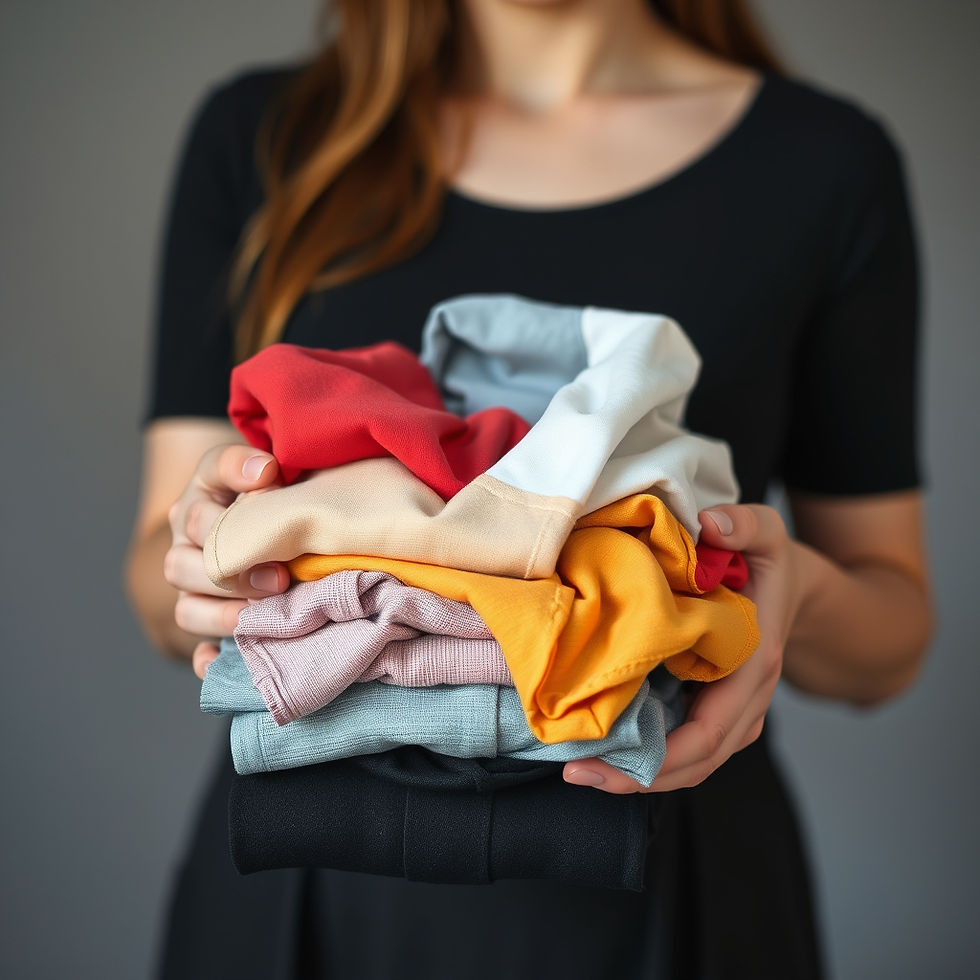How Perth Households Can Reduce Textile Waste in 2025
- Brandon

- Nov 14, 2025
- 3 min read
For the Lazies (30-Second Summary)
Perth households can make a big difference in reducing textile waste in 2025 by rethinking how they buy, use, and dispose of clothing. From repairing garments and joining local swap programs to supporting businesses that recycle textiles, small steps add up. As WA moves towards a circular economy, initiatives like Polyclo’s upcoming local recycling operations will make it easier for residents to recycle polyester textiles responsibly and reduce landfill waste.
Understanding Textile Waste Reduction in Perth
Textile waste is one of Western Australia’s fastest-growing environmental challenges, but Perth households are uniquely placed to drive change. In 2026, sustainable living will be about more than just recycling bottles, it’s about tackling fabric waste and rethinking how we buy, repair, and reuse clothing. Here’s how local residents can lead the way in reducing textile waste while supporting a cleaner, more circular economy in WA.
Each year, thousands of tonnes of unwanted clothing end up in landfill across Perth. Most of it is made from synthetic fabrics like polyester that can take decades to break down. The good news is that by adopting simple household habits and supporting local recycling programs, Perth families can help turn the tide on textile waste.
Textile waste reduction in Perth starts with mindful purchasing. Before buying new clothes, ask if the item is needed, made to last, or can be recycled later. Choosing high-quality or second-hand garments reduces the overall demand for fast fashion and prevents fabrics from entering landfill prematurely.
Simple Ways to Live Sustainably in WA
Practical steps make sustainable living in WA achievable for any household. Start by donating gently used clothing to local charities or op shops. Many Perth councils also run community collection days for textiles, offering an easy way to recycle responsibly.
Repairing clothes instead of discarding them can also make a major difference. Basic sewing skills, like replacing buttons or patching tears, extend the life of garments and reduce demand for new materials. Local repair workshops in Fremantle, Subiaco, and Rockingham provide free or low-cost opportunities to learn these skills and meet others passionate about sustainability.
Repurposing and Creative Reuse
Old textiles can have a second life. Turn worn-out T-shirts into cleaning rags, repurpose old jeans into tote bags, or transform scrap fabric into pet bedding. Community sewing groups and online forums often share creative upcycling ideas suited for all skill levels.
Join Perth’s Textile Recycling Movement
In 2025, Perth is moving closer to a true circular textile system. Local organisations and upcoming recycling initiatives are helping close the loop by turning used fabrics into new materials. One example is Polyclo, a Western Australian recycling company preparing to process polyester textiles and other PET-based materials locally. This will provide new opportunities for households and businesses to recycle synthetic fabrics directly within WA instead of sending them offshore.
Supporting these programs, through sorting textiles properly, spreading awareness, or participating in local drop-off schemes, helps reduce landfill waste and creates local jobs in the sustainability sector.

Reducing textile waste in Perth is achievable when households embrace small, consistent actions. By repairing, reusing, and recycling, every home can play a role in protecting WA’s environment. As local initiatives like Polyclo expand, Perth residents will soon have even more accessible ways to recycle textiles responsibly and contribute to a circular economy.
Contact Polyclo today to learn more about how local recycling innovation will help Perth households reduce textile waste and create a cleaner, more sustainable Western Australia.

Comments